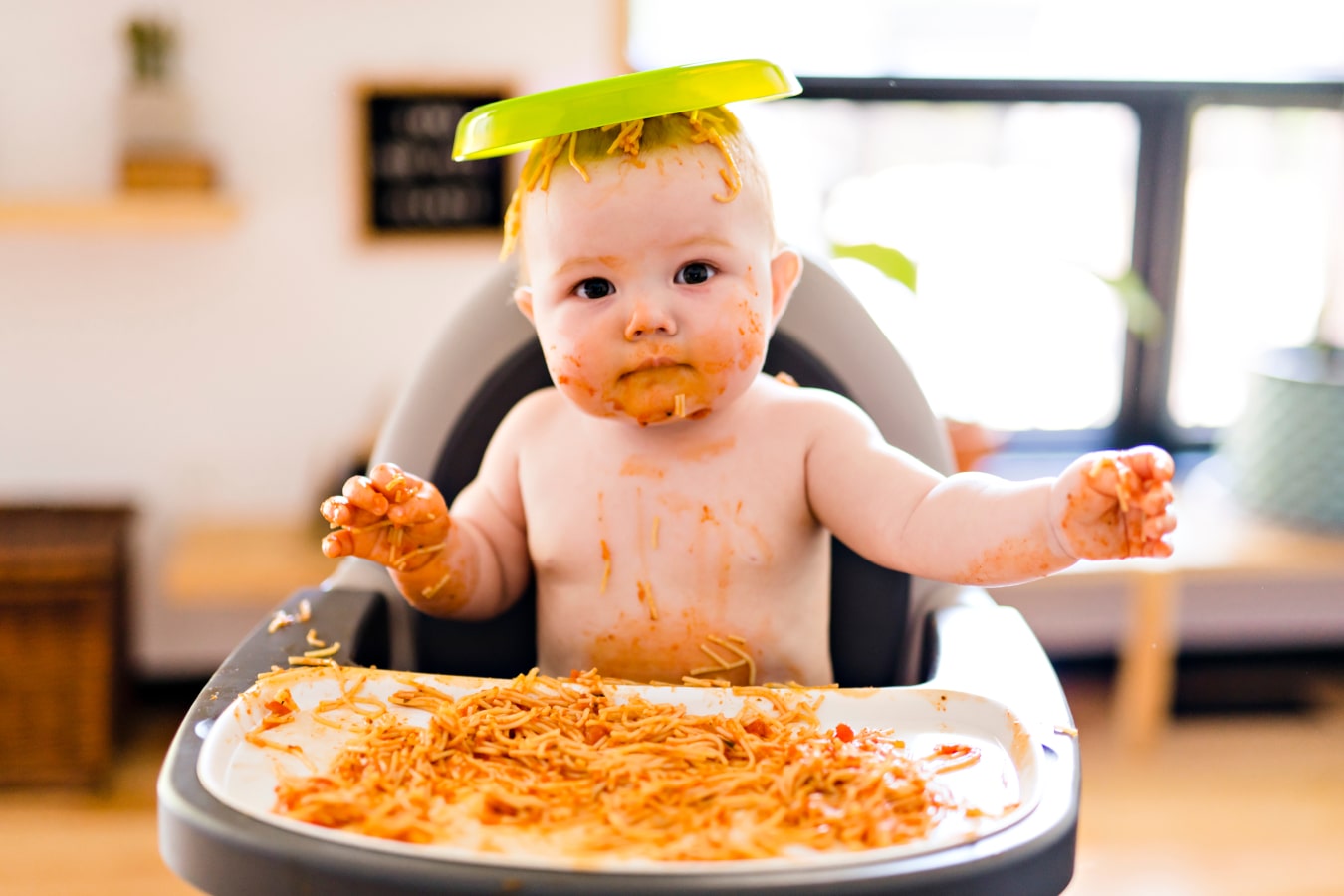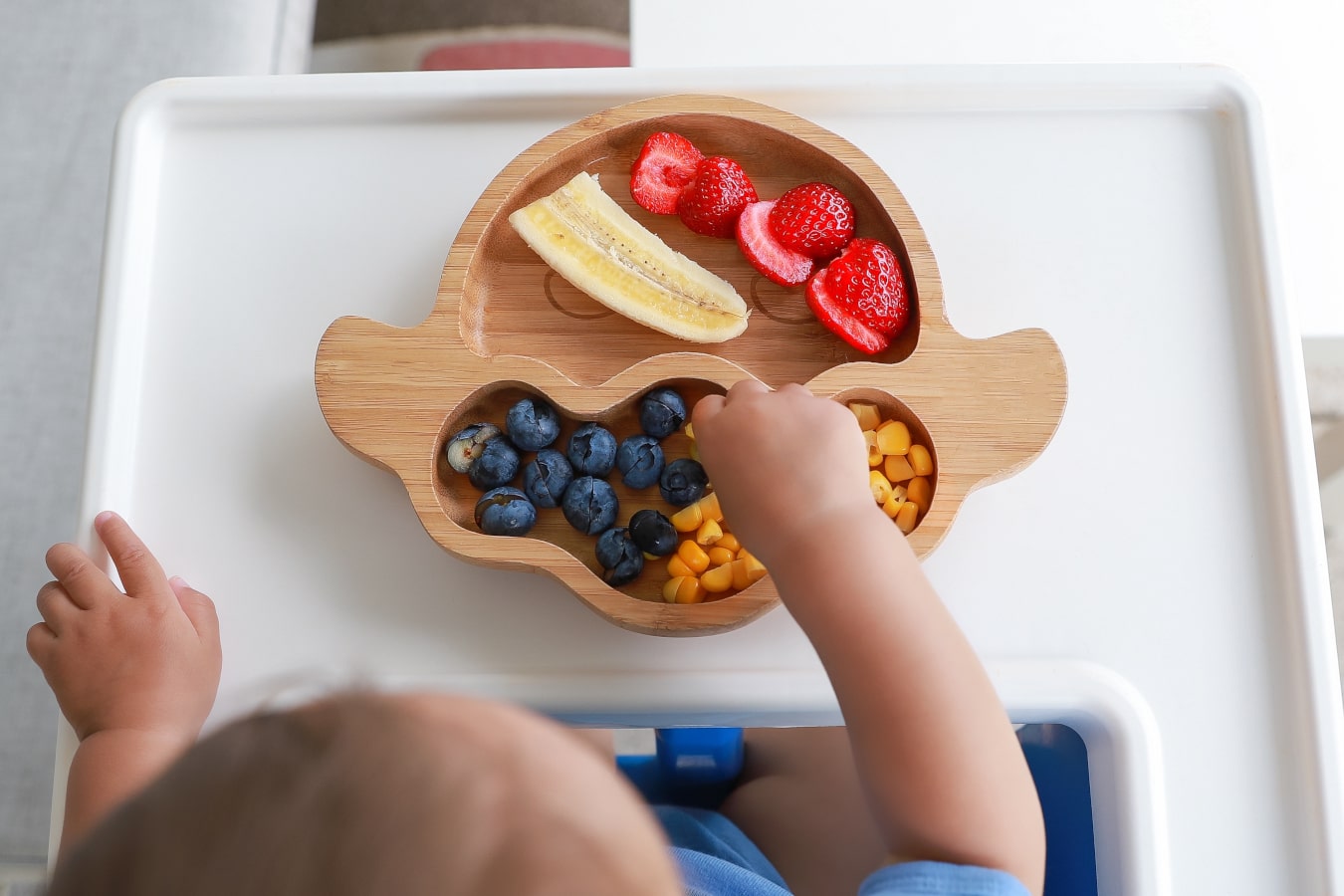Five ways to deal with your child's poor appetite

You surely know that a well-balanced diet has a huge impact on the human body. In the case of children, nutrition is also essential in forming correct habits that will accompany them for years. Sounds scary, doesn't it? Especially if your child is a fussy eater...
Way to deal with a fussy eater
Many parents of poor eaters wonder how to get their child to eat 'normally'. Dry pasta for another week in a row, a roll without butter, hotdog, or the same cereal - sound familiar? Or are you the lucky one who has a picky baby - who eats only certain foods for a long time, and nothing else will go down their throat?
If you wonder how to encourage your child to eat balanced meals without causing harm by creating an unhealthy relationship with food, please read on.

When the picky eater will start to eat?
If you're reading this, you probably worry about the proper development of your fussy eater. First, we would like to calm you down – if, according to you, your little one does not eat, it doesn't mean at all they are not developing correctly.
First of all, pay attention if your little one gains weight according to the doctor's orders, if they like to play, are in a good mood, or sleep well. If yes – then you don't have to worry. Of course, we encourage you to follow our advice on developing your child's correct relation with food (at least with veggies and fruits); however, stay calm about your child's development. Nonetheless, remember that if you're still in doubt or simply don't know how to check if your child develops properly, visit your doctor.
How to encourage your child to eat?
Composing meals for a picky eater requires flexibility from parents and – foremost- patience. Child's diet changes like in a kaleidoscope: once the child can only drink the orange juice and the other time will prefer only the water from a particular brand. This type of behavior is often dictated by the needs of a developing body, which thus signals that it needs specific micronutrients at a given moment.
Besides, you probably don't always fancy what was prepared for the dinner. The children have their moods just as the adults do – but with the difference that it is harder for them to control and express emotions. This is why they are fussy, capricious, or get angry and throw their dinner, which they are currently not in a mood to eat.

How to deal with the fussy eater?
Here are the 5 most common reasons children don't want to eat. Along with them, we suggest solutions worth trying to encourage your little one to eat. Read them carefully – maybe one simple change introduced at home will be enough to make your child eat willingly? :)
1. Monotony on a plate
Children do not like monotony on a plate, while adults are used to it - we can eat the same thing two days in a row, or homemade dishes served plain. With children, however, it is not so simple. Little ones are curious about the world, hate boredom, and want to play. It's also hard for them to concentrate, especially for preschoolers.
No wonder they get angry at the sight of buckwheat with the sauce or another plate of soup. Try to take a moment and organise the food differently on a plate – sometimes it's enough. Funny faces or animals made of fruit and vegetables will catch your child's eye and help them concentrate on eating. Colorful food also encourages eating – that's why children reach out so willingly for colorful sweets. So bet on various veg in all rainbow colours and check if it works.
It is also possible that the child is simply uncomfortable. Make sure you have a comfortable feeding chair that provides a suitable feeding area for your child. Foremost, pay attention to a wide and adjustable seat and a sufficiently large tray. Also, take care of your own comfort – check if the feeding chair chosen by you is easy to clean – equally the tray and the seat. Additionally, it would be good for the feeding chair to have a wide range of adjustments that will allow you to adjust its height to the table.
Here, a good choice will be a feeding chair that will last you for years, such as the ENOCK feeding chair. The chair is available in a version with two pillows – one that the child can sit on and a second one to support his back. Thanks to this, your child will get a comfortable space to eat and also to play.

2. The pressure
We all know you want the best for your child. But sometimes, it is good to take a step back and look from a distance on the child's plate and on an atmosphere that accompanies the meal. Putting too much pressure and giving stress while eating and persuading the child to eat ('for nana, for mommy... ') may cause a dangerous precedent, resulting in future eating disorders. Forcing the child to eat by the reward-and-punishment approach (especially with sweets) may also develop an unhealthy relationship with the food. And that's something every parent is trying to avoid!
That's why you should try to let it go. The little one doesn't want to eat? Maybe they are not hungry. Try to offer the child a healthier substitute (never cookies or biscuits). Don't allow eating sweets before the main meal: they are filling and can cause a lack of appetite. Also, avoid playing cartoons while eating: the baby gets distracted and doesn't concentrate enough on the food.
For sure, do not scare or blackmail your child. 'Eat, because if you don't, someone will come and take you away', or 'If you don't eat, you upset your mommy " – this is absolutely unacceptable. Never make your child feel guilty for not eating something! Remind yourself: how many times have you eaten till your stomach hurt just so you didn't upset your granny? Stretching your stomach to please someone else is not ok!
What to do instead? Encourage your child and discuss what they want to eat before you proceed with cooking. Invite your little one to eat together – perhaps the mess in the kitchen will be bigger, but the child's joy will be indescribable. And additionally, there's a greater chance for the little one to pick something they feel like at the very moment.
3. Snacks before the meal
We spoke about it a little bit in point 2. Snacks' spoil the appetite' for both children and adults. Chocolate, cookies, sweet beverages, and innocent at first sight fruits or any other snacks are simply filling for the little one; therefore no surprise they don't want to eat his dinner later on. Particularly "dangerous" are seemingly harmless snacks – ones that contain a high amount of proteins and fats. Various cheese snacks, hot dogs, or jerky beef will fill your child for a long time.
So avoid giving your child snacks that are filling or cause a sugar level to spike (sweets). You must learn to distinguish between the moment when the child is really hungry and the moment when they are bored. It is a difficult art as even the adults have trouble telling the difference. That's why a good solution is to keep your child occupied, so they don't get bored (for example, by playing, doing puzzles, or drawing), just not with waiting until all the food is served. If the little one is hungry, but the potatoes are not ready yet, let them eat first the meat and salad. Nothing bad will happen if, later on, the child won't feel like eating the potatoes :) Don't fall into the "all or nothing" trap.

4. Calling the child fussy
Do you remember the phrase 'talented but lazy'? People tend to blindly believe the words spoken by authority figures. In children's case, their authority is their parents - so if you call your child a slacker or a fussy eater, don't be surprised if they believe it. And once they do, then... it becomes a reality!
Frequently repeated lie often becomes the truth. Alvaro Bilbao, among others, wrote about this in his book 'The Child's Brain explained to parents". So remember: be careful with the words you say, especially in front of your child. Do not call them fussy, picky, or capricious eaters.
5. Let it go
But how just let it go? The answer is: yes. Perhaps it's just a phase, a transitional period that shall pass as fast as it appeared. But if the child continues not to eat for a longer time – even the sweets – go to see a doctor.
And if you see the child skips the main meals but eats the snacks or just what they feel like... then let it go. Properly developing child will not starve over a plate of soup ;)
But how do I let go? It's very simple. If the child doesn't want to eat dinner with you, don't prepare the portion for them. Prepare as much food as usual, but don't put it on their plate. Accept the fact that the child does not want to eat. For sure, the child will be curious, why no one prepared a cover for them? Talk to the child that you accept that they don't want to eat, and therefore you will stop insisting and encouraging them to do so. However, ask the child if they changed their mind. The reverse psychology might trigger here, and the child, out of sudden, will decide to try their meal ;)

An issue with a fussy eater – how to solve it?
Children, especially the older ones (in preschool-age), show off much more willingness to eat when they are allowed to participate in preparing a meal and/or cooking. Except that it is worth ensuring a permament dining seat for your child if they desire one. Some children eat better if their plate has an image from their favorite cartoon, and some prefer to eat on the same plates as their parents. Ask your child what they prefer and try it out.
With the older kids, it's worth planning the meals, reading the books about healthy eating habits or fruits and veg. Show your little one a cooking book and cook together – show them that eating and preparing the meals doesn't have to be boring! The "empty plate" method is also worth trying out – the child gets an empty plate and puts on it whatever they feel like eating.
And the most important – listen to your child. Talk to the child without making them feel guilty. You can always freeze the food and prepare something else for today's meal. Whatever happens, just don't react with silence: say what you're about to do. Think out loud if you have frozen stock of something your child fancies at the moment. Or maybe you will prepare them together tomorrow?
Such an approach will definitely be fruitful in the future. You just need to be patient and learn to let go. This is exceptionally difficult, but the benefits are that you will become much calmer, and so your child will stop feeling pressured. Grit your teeth and take a few deep breaths, and who knows, maybe your teenager will be a new Master Chef and will cook for the family in the future? :)
